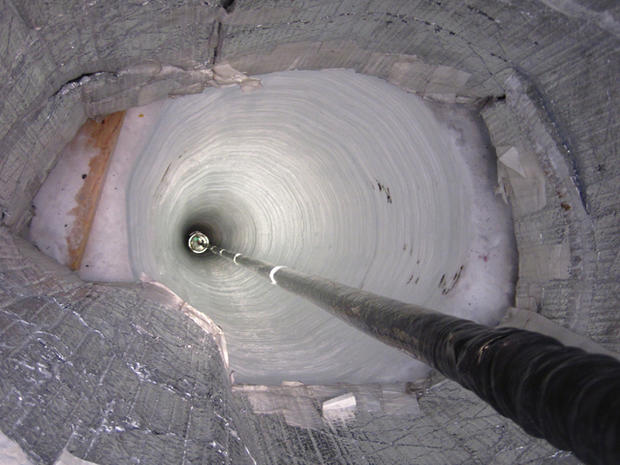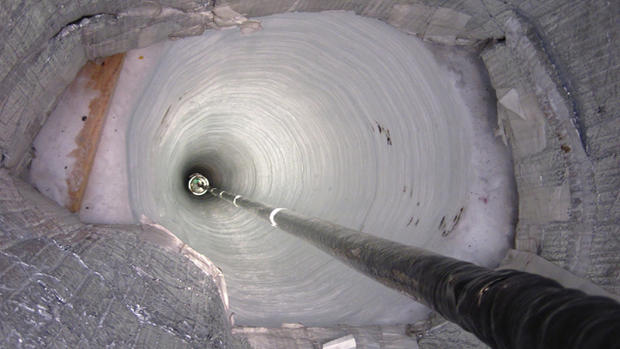World's Biggest Neutrino Detector Finished in South Pole
By any yardstick, this rates as one of the more unusual science projects. About 8,000 feet underneath a sheet of arctic ice, the last group of detectors for a $279 million neutrino detector called IceCube were successfully lowered into place on Dec. 18, capping a five-year project in the South Pole that has fired the imagination of astrophysicists.
The project has been operational since 1995, though this was the final stage. It thus paves the way for one of the more ambitious scientific undertakings in recent memory to learn about the nature of these still mysterious subatomic particles. Although not much is known about neutrinos - so far, only a dozen have been detected - they are believed to be generated as one of the byproducts of violent cosmic events. IceCube features an array of more than 5,000 detectors that track neutrinos back to their points of origin by picking up on the radiation trail left in the aftermath of subatomic collisions. Scientists drilled 86 holes in the ice in which they've lowered detectors called Digital Optical Modules. The equipment will hone in on the traces of blue light - known as Cherenkov radiation - which results in the aftermath of collisions between neutrinos and with oxygen atoms in the ice.
Why all the fuss? Among other theories, scientists say the project could further their understanding of string theory and advance current understanding of the universe. Scientific American offers a good primer on why neutrinos remain such a curiosity. The particles are "electrically neutral and loath to interact much with other particles, they zoom from their cataclysmic origins through the intergalactic medium and can pass through Earth unscathed. (They also originate from more mundane sources such as the sun.) Much as gamma-ray and x-ray observatories have already done, IceCube should provide a new layer of observational insight to the highest-energy processes in the universe."
You can find out more about IceCube here.

